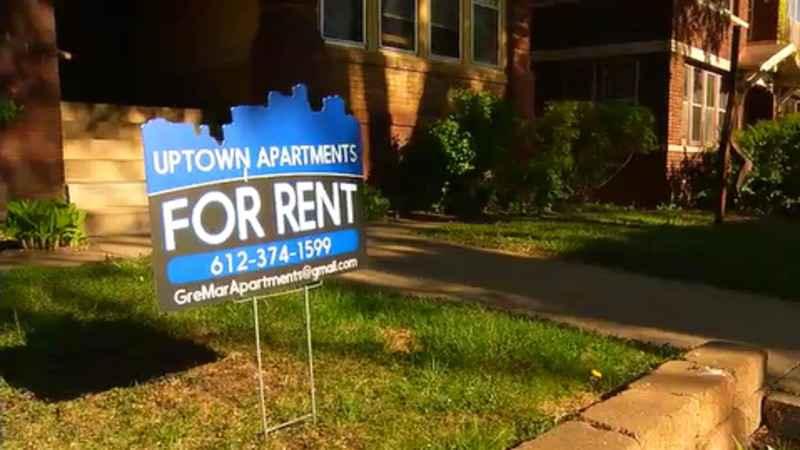Tenants, landlords concerned about RentHelpMN as phase out looms
[anvplayer video=”5057525″ station=”998122″]
Lynetta Evans hopes to stay in her north Minneapolis apartment.
“The people shouldn’t really want to evict you, especially if you’ve got children,” she says. “We all need help from one time or another.”
She was among those at a rent help pop-up workshop, applying to RentHelpMN for financial assistance.
“It’s going to take a process,” Evans says. “But the process is letting you know that you could look forward for help in the future.”
RentHelpMN allows Minnesotans who may have lost their jobs or have COVID-19 pandemic-related money concerns to apply for aid.

[KSTP]
The state has received $672 million from the federal government for the program. But renters worry about money delays.
“They are telling us it is taking a very long time to get their payment to their landlords,” says Representative Esther Agbaje. (DFL-Minneapolis). “We have heard many stories from people who applied months ago when the assistance first opened."
Minnesotans have requested $267-million in aid. So far, only $59 million dollars — about 22% — have been paid out. The state also says 44,111 applications have been submitted to RentHelpMN, with about 11,430 — 26% — fulfilled.
Back in July, Minnesota Housing Commissioner Jennifer Ho warned applicants and landlords that there could be delays.
“It takes some time to process these,” she said. “There’s a lot of information that needs to be gathered and checked in order to make a payment — and know that you don’t, can’t be evicted while we’re processing that application."
All of this is happening as Minnesota’s eviction moratorium phase out is ending soon.
On Oct.12, renters’ eviction protections will expire.
"But what we’re trying to do with the rental assistance is that once you have an application in the system, and as long as the application is pending, you will then be covered and protected from eviction until June of 2022,” Agbaje explains.
Still, there is frustration that the program isn’t moving faster.
“We got computers, we set tables up, we sent letters to our tenants saying we’ll help you,” Kelley Martin, a program manager who also runs non-profit ‘Steps of Strategy’ says. “Landlords get tired of carrying the weight of this burden because that is what happened.”
Martin says she’s the property manager for 420 metro-area private buildings, and 60 non-profit-run structures.
The pressures on landlords, she says, have been difficult — especially without rent income from some tenants.
"Unpaid rents, the city still requiring repairs to be made. Tenants still asking for repairs to be made,” Martin notes. “And landlords have no funds coming in to take care of those assets in a manner that’s pleasing."
Martin says out of 88 applications she’s submitted to RentHelpMN, only eight have been approved.
In some cases, she says, people sent applications in last April, but didn’t receive assistance checks until August. Martin says she’s also had requests for duplicate documents she’s already sent in.
“You have to put in all the information in order to submit the application,” she says. “Once you do that, they’re coming back two to three months later, saying ‘we need this, we never got it,’ when actually, we uploaded everything in order for the application to be admitted.”
Agbaje says she’s hopeful that processing of applications will improve.
“I think it’s a mix when you have various levels of government trying to work together,” she says. “And sometimes it works really well and unfortunately in this type of situation, it has not been working to the greatest effect that we would like it to, but we’re hopeful that it will still change.”
Her advice?
That tenants and landlords should connect and make sure they match each others’ names exactly on any paperwork.
“There are people who work on this a lot, and they want to make sure they’re pairing the right tenant to the right landlord,” Agbaje says. “It just depends on the landlords and how they list themselves in the system, and so we want to make sure the right person is paired with the right landlord.”
Martin, however, says something needs to change.
“It’s crushing owners, and the very owners that are willing to do the affordable housing is probably who it’s impacting the most,” she declares.
Evans says she worries about the future and hopes that tenants’ needs won’t be forgotten.
“Keep in mind that these people do need help in society,” she says. “And I’m hoping and praying that the society gets better.”
The pop-up event was hosted by the Minneapolis NAACP Housing Committee, Rep. Agbaje, North Point and The Urban League. There is another event on Oct. 1 from 3-7 p.m.